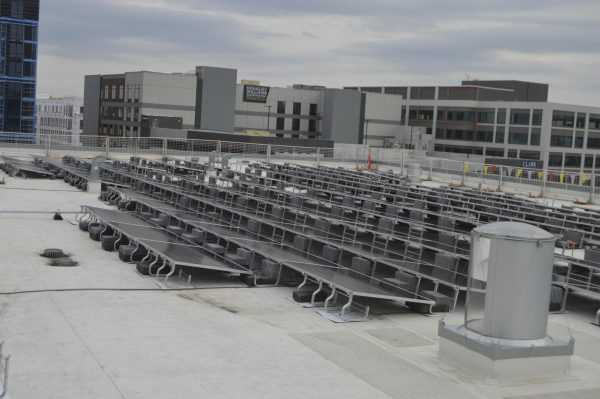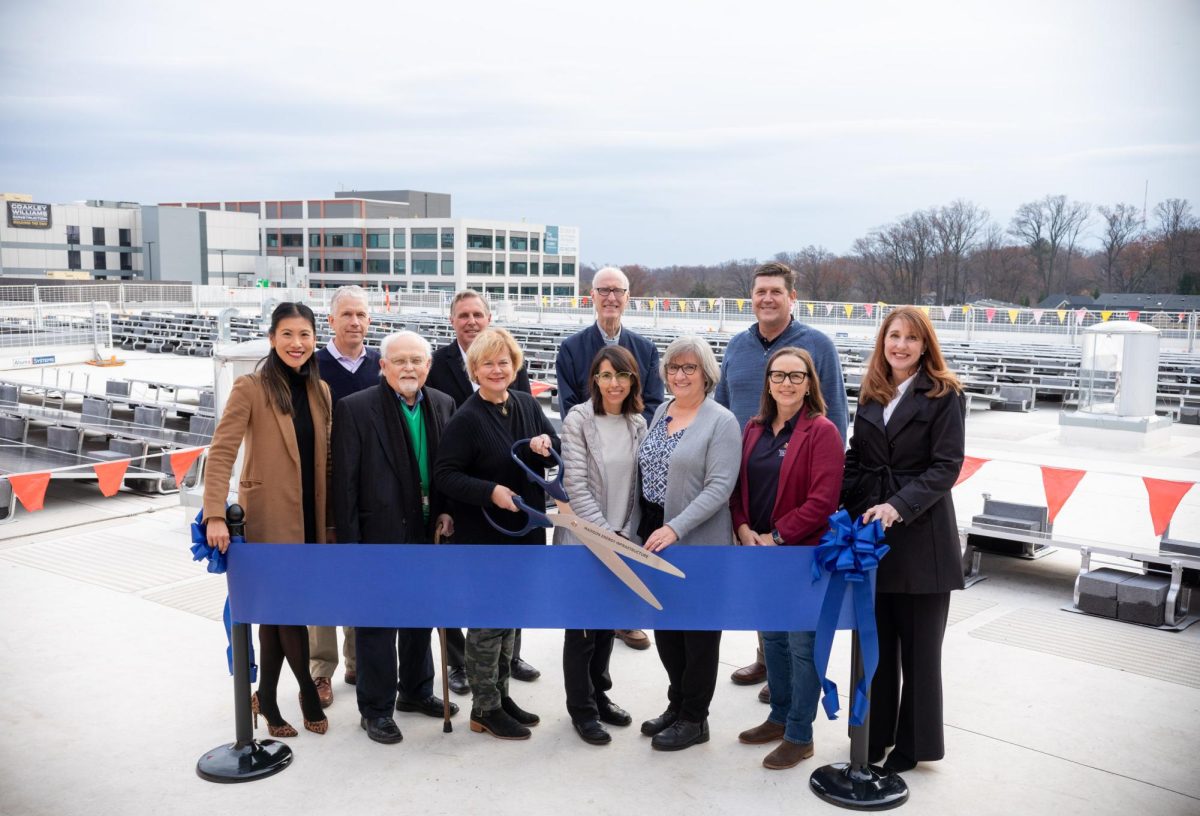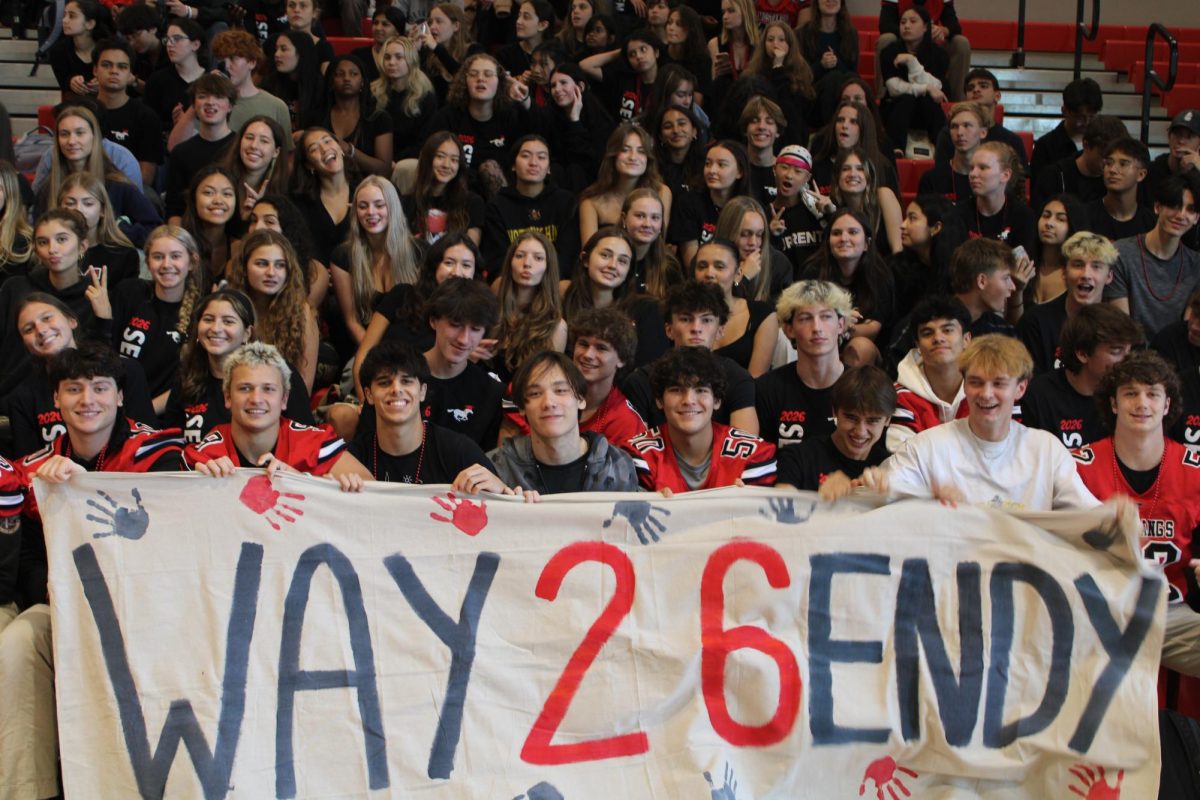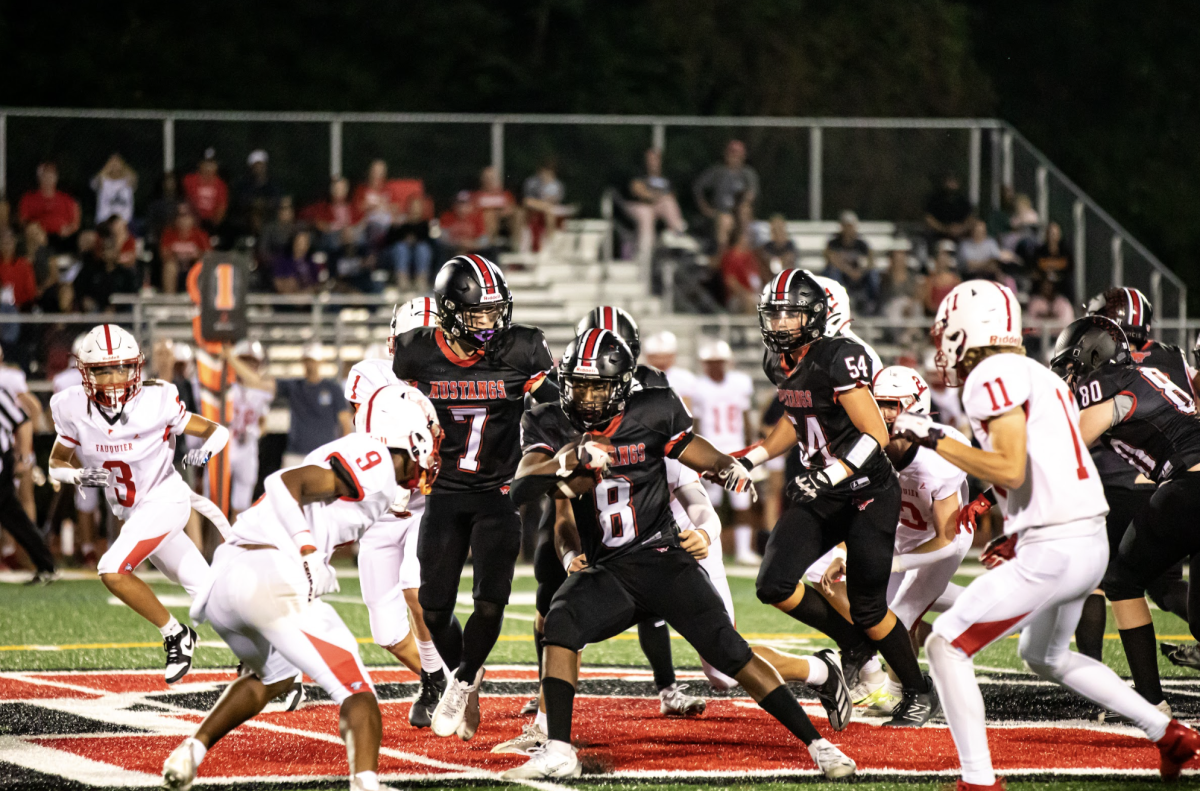Meridian High School may have opened on Oct. 2, 2021, but construction continues to this day. Foremost among Meridian’s ongoing development is the planned 65,000 square feet of solar panels to be installed onto the school’s roof, which will begin construction in late June and finish over the summer.
The solar roof’s 818 panels will produce 20% of the building’s electricity needs and will come with a power production meter to provide teachers with data on the array’s activities and production, which can be studied and incorporated into classes and curriculums.
Meridian was built to be as sustainable as possible. The building was designed with numerous environmental and renewable features, such as a geothermal heat sink, insulative windows, and numerous green spaces.
Its efforts awarded it the difficult-to-acquire Leadership in Energy and Environmental Design (LEED) Gold certificate after rigorous design and construction efforts. The LEED Gold Certificate is only awarded to buildings which have met the highest standards for environmentally sustainable and efficient construction, operation and design. City officials have expressed satisfaction with the developments.
The solar panels will be installed by the Vienna-based energy company, Madison Energy Investments. Funding for the panels is provided by a 25-year ‘power-purchase agreement’ with solar installation company SunTribe Solar, stipulating that SunTribe will pay for the installation and maintenance, while FCCPS will pay SunTribe a fixed rate of $0.131 per kilowatt-hour produced.
On Dec. 5, a ribbon cutting ceremony was held for Meridian’s solar roof, at which Superintendent Noonan, SunTribe Solar’s co-founder, Richard Allevi, and a member of the SCA, along with others, spoke.
“Building a legacy is important work that requires thorough planning, and a commitment of time and energy,” Allevi said. “Falls Church City Public Schools is a dream partner for us because they brought all that to the table.”

FCCPS Chief Operating Officer Kristen Michael praised the production meter system. “We’ve been really engaging our students in the instructional process with sustainability, [as it] is in absolutely perfect alignment with our goals in terms of instruction.”
“FCCPS is committed to sustainability and the investment in solar at Meridian is something we are very proud of. We are excited that the project is moving forward,” Michael said.
After the installation of panels on Meridian, the Falls Church City Government has plans to install solar facilities on other City-owned buildings in future years. The schedule calls for solar installation on the Aurora House and Jessie Thackrey Preschool in 2024, on the Community Center and Oak Street Elementary School in 2025, the City Hall, Mary Riley Styles Library, and Mount Daniel Elementary School in 2026, and Mary Ellen Henderson Middle School in 2027.
While the future installation of solar panels on other City buildings will provide 7% of their electricity, Meridian’s immense sustainability will cement the school as the current pinnacle of Falls Church’s renewable design and planning.
The building’s high-performance envelope minimizes heat transfer to and from the building, and its innovative stormwater management system, through the use of bioretention zones, green roofing, and permeable pavement, provides an environmentally friendly answer to water runoff.
“Our school system has a deep and long-term commitment to sustainability,” Michael said in an interview with the Falls Church News-Press. “With the opportunity of building a new high school, we were very fortunate to have support from the school board, city council and our community in terms of really looking to be as sustainable as we could.”










